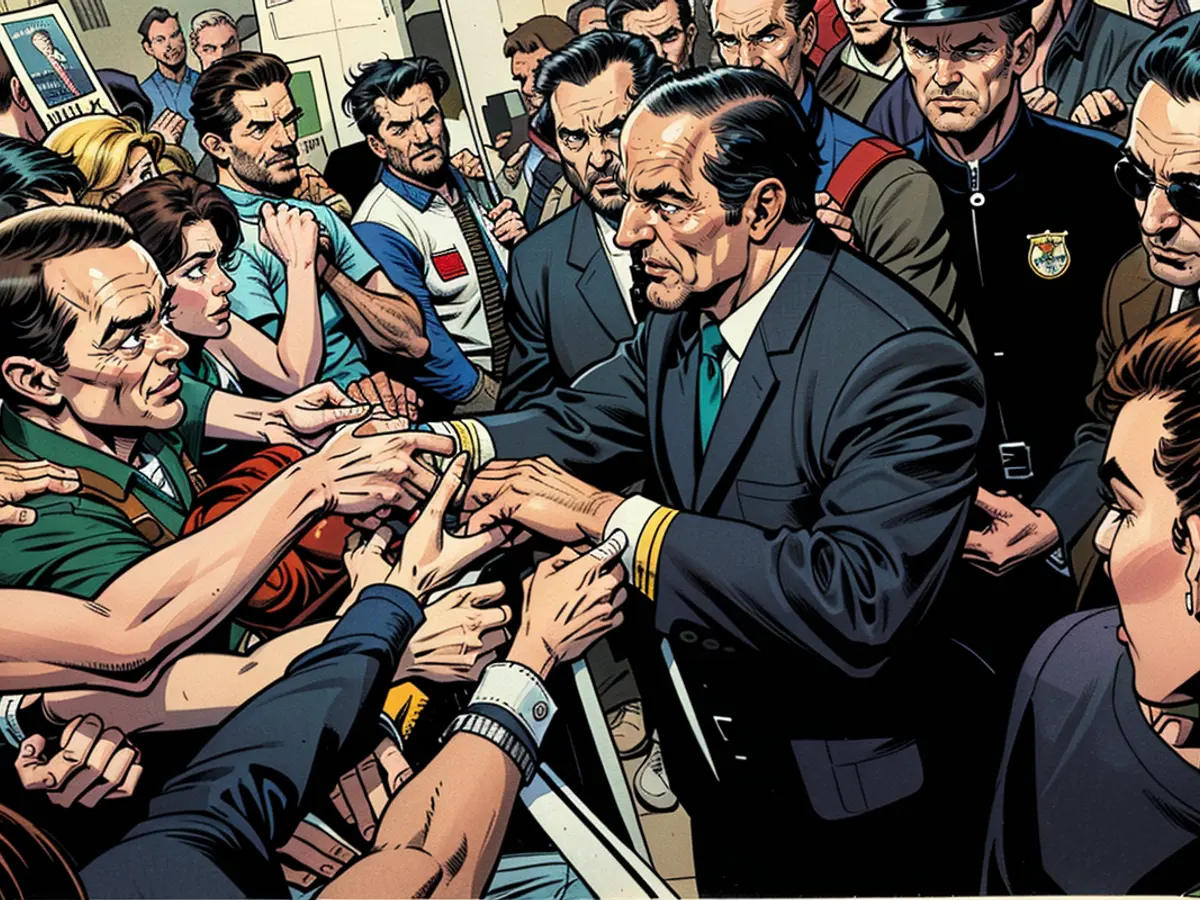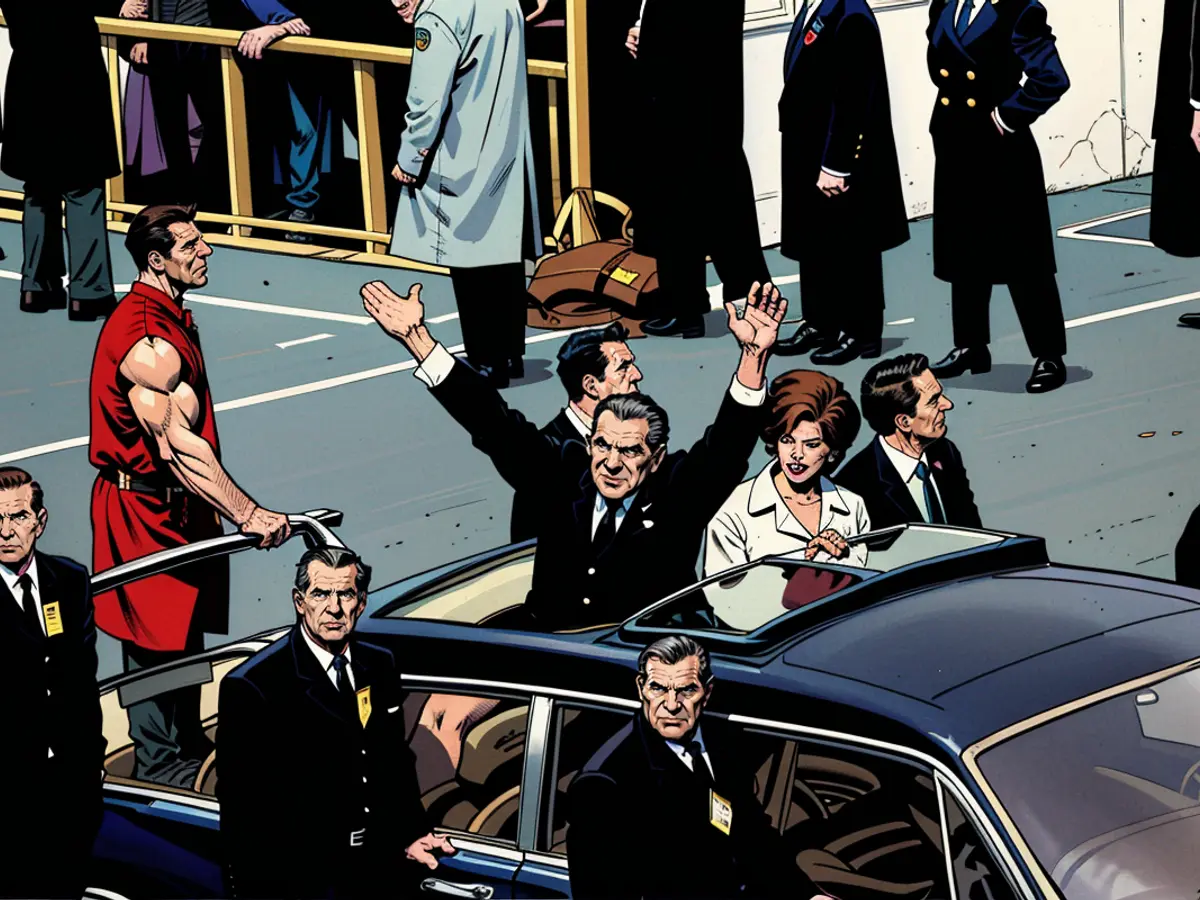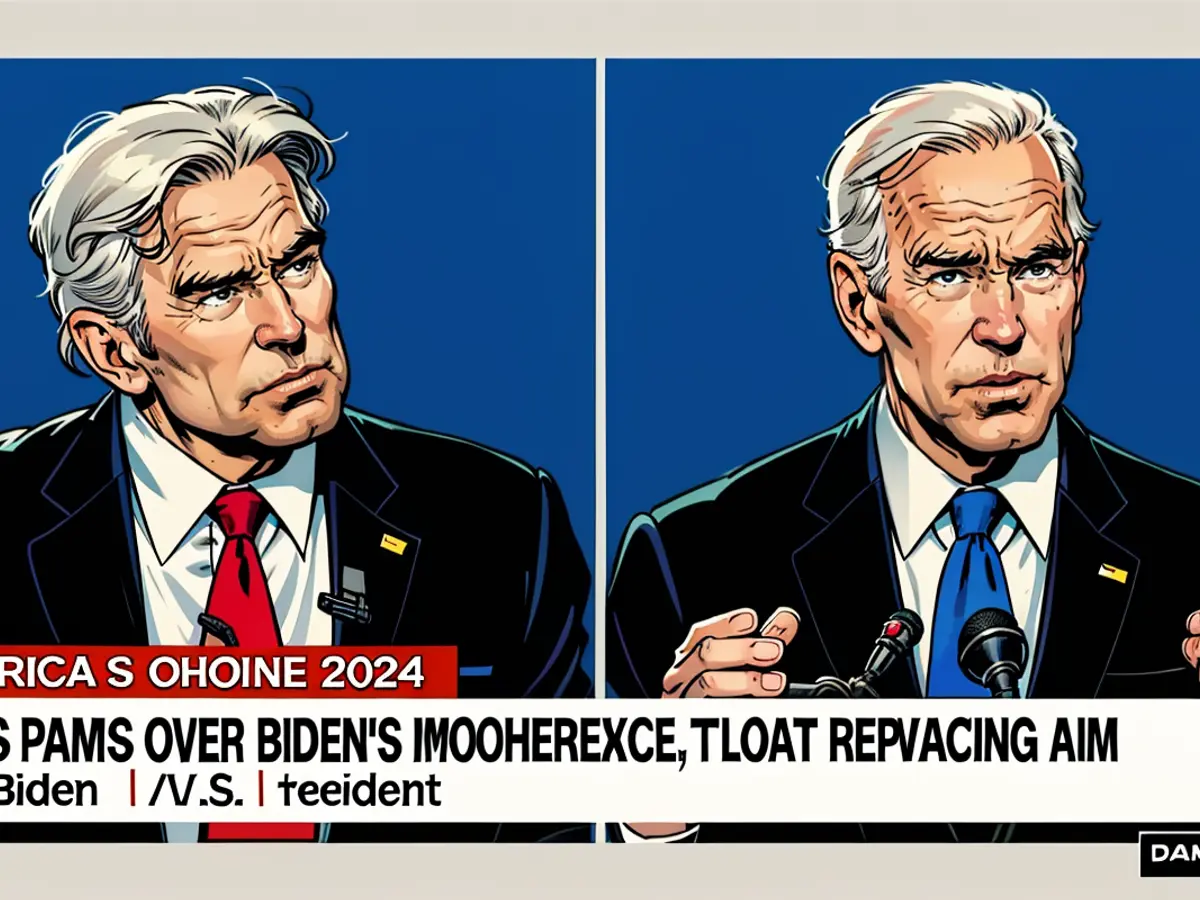Opinion: Before Democrats think about replacing Biden, they should remember 1968
Biden and his family are standing firm about his determination to stay in the race and ability to win, but the pressure has not abated. Throughout the mainstream press, the calls for him to step down have continued while privately Democratic officials and donors continue to have this conversation as well, waiting to see the post-debate polls. According to a new CNN poll, three-quarters of US voters say the Democrats would have a better chance to keep the presidency in 2024 with someone other than Biden as the nominee.
Several Democratic officials started to say the silent part out loud. Texas Rep. Lloyd Doggett called on Biden to step down. South Carolina Rep. Jim Clyburn, whose endorsement was pivotal to Biden’s nomination in 2020, said he would support Vice President Kamala Harris if she were the nominee. Ohio Rep. Tim Ryan called for Biden to step aside and other Democrats made comments raising questions about what should come next.
Biden’s struggle during the debate worsened preexisting perceptions in the electorate that the president is too old for a second term.
Moreover, this moment of crisis comes at a time that polls show Trump slightly ahead in most swing states. Democrats are terrified that the president can no longer prevent a second Trump term, which many believe would be a genuine threat to democracy.
But Democrats clamoring for change should also remember that switching the person at the top of ticket might not have the kind of impact they are hoping for. During the 1968 election, President Lyndon B. Johnson shocked the nation on March 31 by announcing, “I shall not seek, and will not accept, the nomination of my party for another term as your president.” Students ran outside their apartments and onto the streets of Greenwich Village to celebrate the news.

With the nation in the throes of urban unrest and a disastrous war in Vietnam, LBJ — the architect of the Great Society — found himself deeply unpopular among Americans. The chant, “Hey, hey LBJ, how many kids did you kill today?” had replaced “All the way with LBJ.” He was also wrestling a global financial crisis, centering on a gold run. Johnson promised that he would respond through a policy of stringency, cutting spending and raising taxes, so as to stabilize the US budget.
After Sen. Eugene McCarthy, running as an anti-war candidate, nearly defeated Johnson in the New Hampshire primary, Johnson decided to step out of the race. He would use the political freedom that afforded him to try bringing the war to an end before his term ended.
His plan didn’t work. Not only did Vietnam continue to rage for many more years but former Republican Vice President Richard Nixon, a politician detested by liberals for his ferocious anti-communism, won, after LBJ announced he would not accept the Democratic nomination.
In other words, switching out Johnson for his vice president, Hubert Humphrey, did not solve the electoral problems the party confronted.
What went wrong?
At the most basic level, criticisms that were directed toward LBJ were transferred to Humphrey. While Humphrey had been known to be the voice of liberalism and a personally likablepolitician, by 1968 most Democrats had become the face of the establishment in the eyes of younger progressives.
Rather than becoming a fresh voice for change, Humphrey confronted the same criticism for his role in bringing US soldiers deep into the jungles of the war. Had a different Democrat received the nomination, such as McCarthy or Sen. Robert F. Kennedy, who was assassinated following his victory of California’s Democratic Primary, the outcome might have been different. However, we’ll never know whether those candidates could have separated themselves from the baggage of LBJ.
The party divisions that put Democrats at a disadvantage — then between anti-war protesters and the establishment — did not disappear, instead quickly resurfacing with the new candidate. With Humphrey running as the nominee, the divisions within the party exploded at the 1968 Democratic Convention as anti-war protesters clashed on the streets with the Chicago police.
Nor did the basic policy problems that at the heart of Johnson’s disapproval disappear. Policy mattered. Vietnam did not suddenly end with Johnson’s shocking announcement. And the tensions over the war only worsened in the coming months, providing Nixon an opening to promise that he would end the war (without saying how).
The fury in many parts of the country about anti-war protesters on the campuses and over the direction of the civil rights conflict intensified as the GOP mounted their campaign promising to restore law and order. When Nixon rallied the “silent majority” it didn’t really matter who the candidate was.
Republicans undercut the benefits Johnson had hoped to provide his party by engaging in hardball politics and dirty tricks. Intermediaries to Nixon secretly persuaded South Vietnam to reject any deals, holding out for something better under Nixon. John Farrell’s “Richard Nixon” offered bombshell evidence that Nixon knew of the operation, which Johnson privately told Senate Minority Leader Everett Dirksen was “treason.”

Almost 60 years later, the question now is whether a Democrat replacing Biden, whether it would be Harris or Michigan Gov. Gretchen Whitmer or someone else, would eventually face the same polling problems once the honeymoon period ends. That question is further complicated by the particulars of our current moment, with rampant disinformation, manipulation and conspiracy theories, where opponents can deftly transform the image of opponents in the age of social media.
Given the nature of Biden’s Republican opponent in 2024, it is safe to predict that Nixon’s dirty tricks would look mild compared to what any Democrat will confront in the coming months.
Of course, historical comparisons are imperfect. The history of 1968 is a reason for Democrats to be cautious.In 2024, the concerns are about whether Biden has the stamina to continue the campaign, and to handle the challenges of governance in a second term.
Moreover, the current electorate is much more polarized along party lines than it was in 1968, which means that the electoral map will generally not move if Biden resigns, giving Democrats the chance to boost their standing just with a slight bump in swing states under a new candidacy.
Although Democrats are far more united today than they were in 1968, as historian Kevin Boyle argues, the current political landscape only requires minute shifts within small parts of the electorate to shift election outcomes.
Get our free weekly newsletter
- Sign up for CNN Opinion’s newsletter.
- Join us on Twitter and Facebook
The willingness to take this step might also be greater given that Democrats feel Trump, a convicted felon and accused insurrectionist, poses an existential threat to democracy that is far greater than Nixon. Even with the negative lessons of what happened after Johnson stepped out, Democrats might still be very determined to make this historic decision.
But as Democrats move through this crossroads, they would do well to consider the potential limitations of this risky decision.
Democratic officials and donors continue to discuss Biden's future in private, awaiting the post-debate polls, expressing various opinions about his ability to win the 2024 election. Several Democratic representatives, such as Lloyd Doggett, Jim Clyburn, and Tim Ryan, have publicly voiced their opinions, calling on Biden to step down or raising questions about the party's future.
The ongoing discourse among Democrats about Biden's future and potential replacements is colored by historical precedents, such as the 1968 election and President Lyndon B. Johnson's decision not to seek re-election. Officials must consider the potential impacts of switching the nominee, including the transfer of criticisms to a new candidate, the resurgence of party divisions, and the potential for damaging tactics from opponents.







